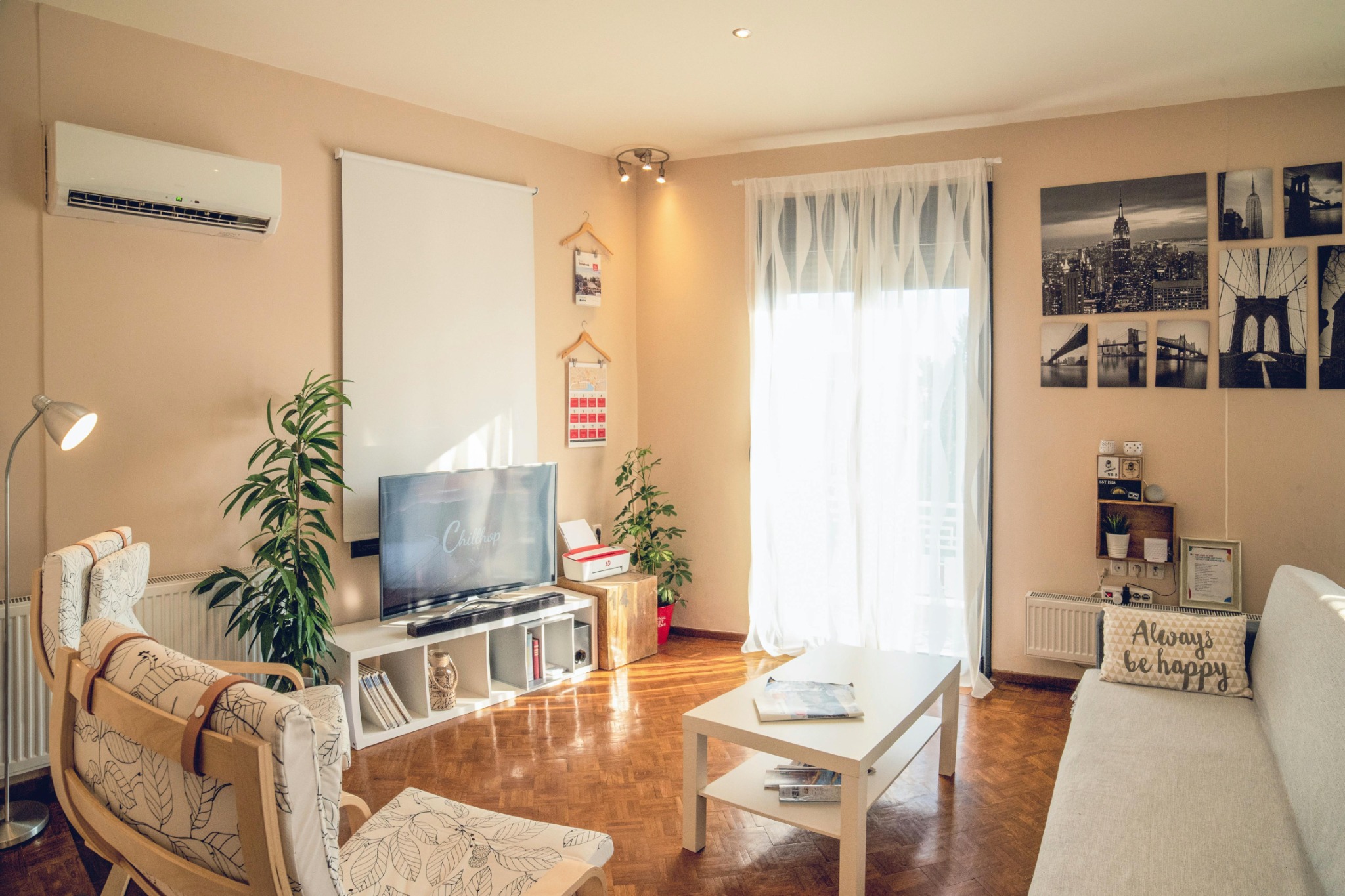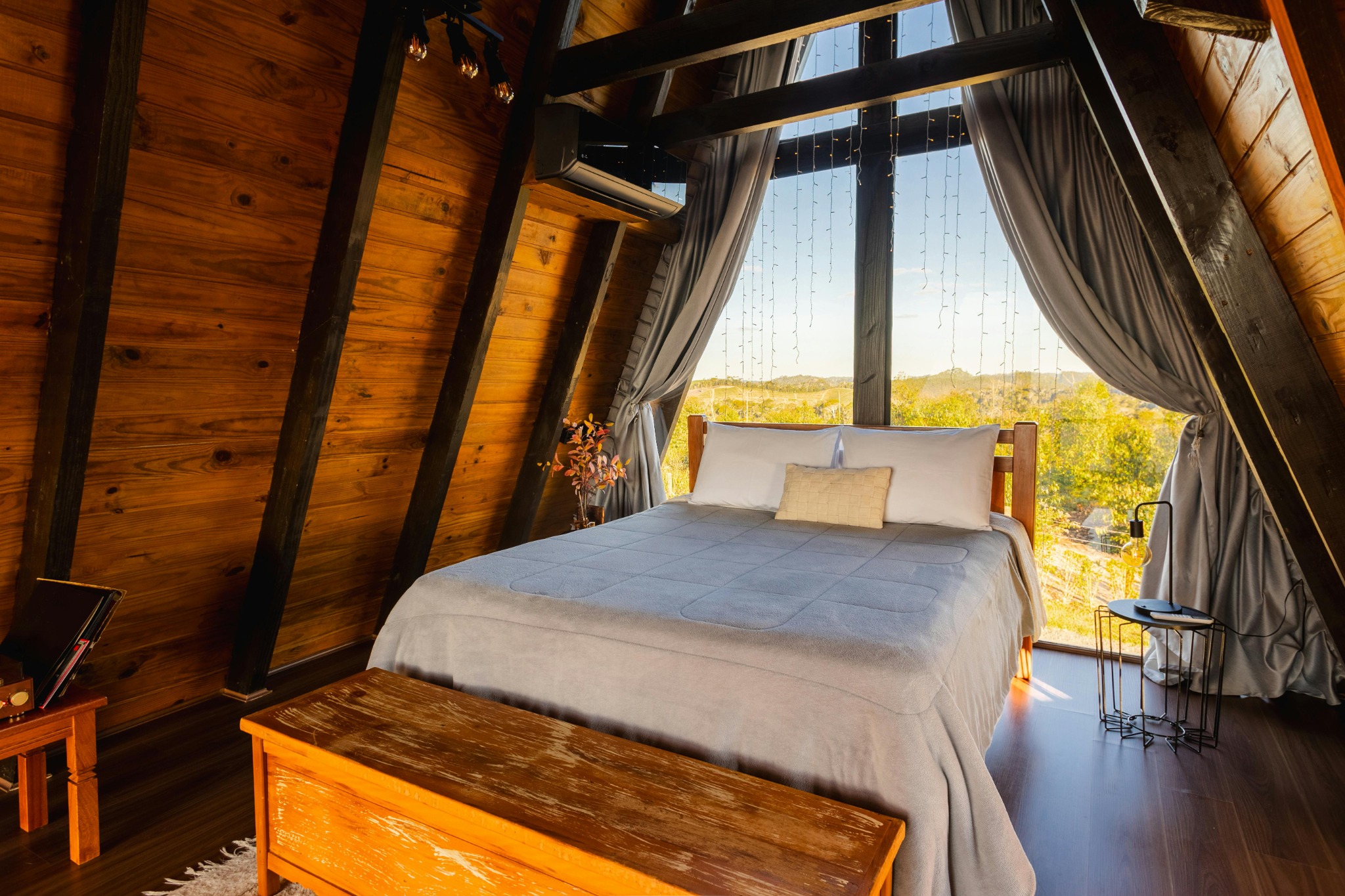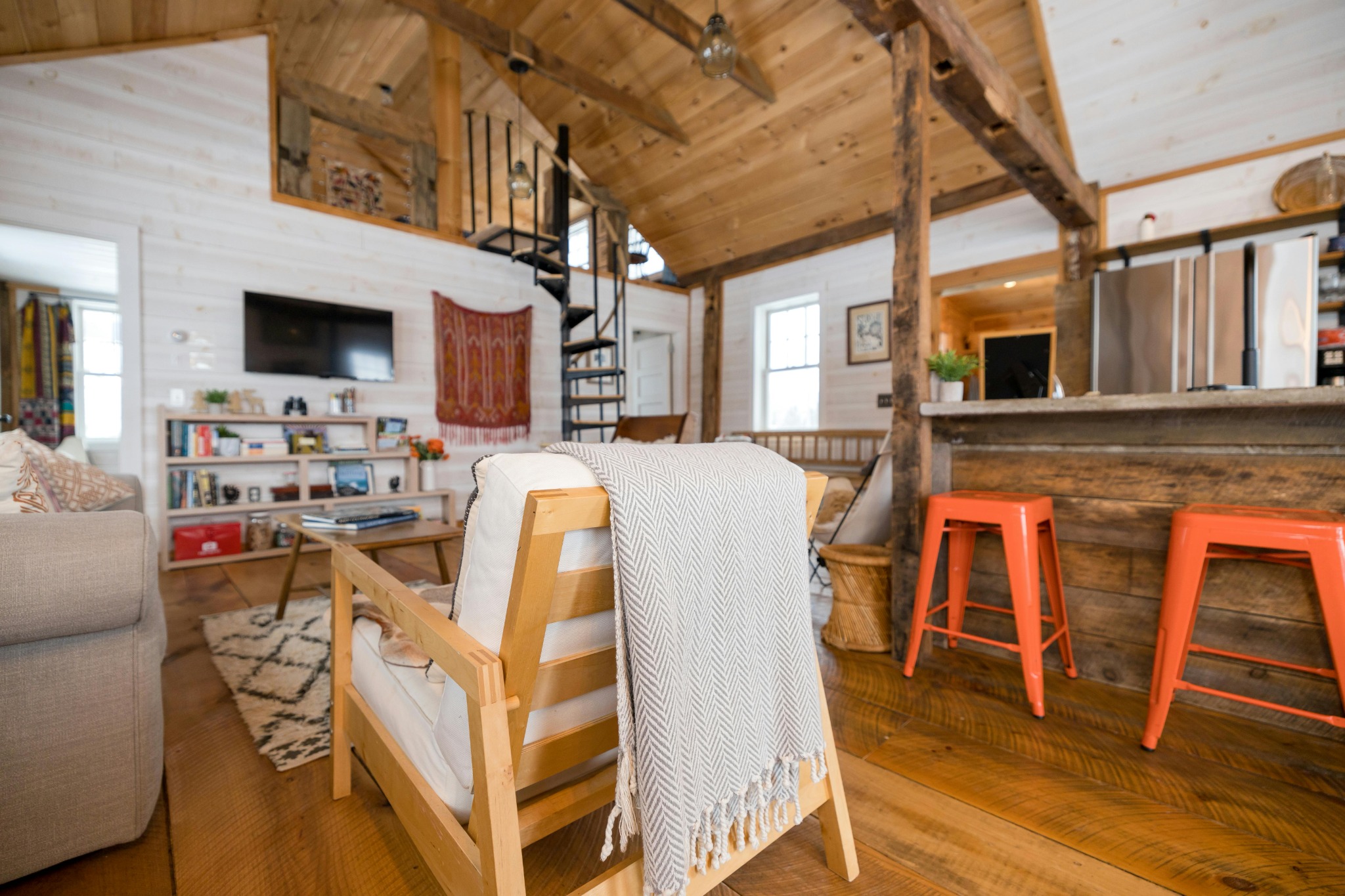Why Every Vacation Rental Host Needs a Direct Booking Website
Gain more profit and control for your vacation rental business with a direct booking website. Skip fees, build trust, and attract loyal guests.

·4 min read

Uncover the best platform for listing your vacation rentals in 2024: VRBO vs. Houfy. Explore key differences and make an informed choice for your property.
Whether you're a new vacation rental owner looking to make a splash or a pro listing on multiple sites, the VRBO vs. Houfy comparison is hard to ignore. These companies always show up on Google's results for vacation homes, and the question remains: which one's better?
While VRBO is one of the largest listing platforms in the industry, Houfy is the new book-direct solution that helps hosts and guests save money. In this guide, we'll explain everything you need to know to compare these platforms and spot your winner in the VRBO vs. Houfy debate.
VRBO, owned by Expedia Group, stands for "Vacation Rental By Owner". Initially founded in 1995, 13 years before Airbnb, it remains one of Airbnb's largest competitors, although it never reached equal success. The platform allows owners to list their homes for short-term rental and travelers to book them. VRBO handles the transaction and earns its fees.
As of 2024, VRBO has over 50 million website visitors monthly, with its core audience in the US, UK, and Canada. Its Facebook page has 6 million followers. And when it comes to rentals, the platform boasts over 2 million properties in 190 countries and 48 million users.
VRBO provides a plethora of vacation rental properties. The options are endless, from city apartments and cottages to tree houses and castles. Just like Airbnb, VRBO offers both private and shared rentals.

VRBO offers a pay-per-booking option for property owners, where they pay a set percentage of 8% every time they get a booking. This breaks down to 3% payment processing fees and 5% commission fees. Remember that these fees don't apply to cancellation or property damage protection.
The 5% commission applies to any additional fees you might charge visitors (such as cleaning or pet fees). On the other hand, the 3% processing fee is charged on the total payment received from guests, including taxes and refundable damage deposits.
Until recently, VRBO offered an annual subscription fee, where guests had to pay a flat rate of $499 yearly to maintain their listings. The flat rate covered all possible expenses that would otherwise be charged to hosts with every booking. However, VRBO has paused any new participation in the subscription plans until further notice since very few of their partners opted for it.
Regarding guests, VRBO will charge a 6% to 15% service fee, minus taxes. One of the platform's cons is that although owners won't charge more per additional guest, VRBO will. The more people in a party, the more the charges.

VRBO mainly caters to large groups of travelers or families. Most rentals on the platform are large vacation homes with higher prices compared to other OTAs like Airbnb. As a result, VRBO mainly attracts older travelers with children or in large groups.
VRBO makes it difficult for owners and renters to communicate with each other. Contact information is hidden from both parties, and if owners try to take business off the platform or promote book-direct solutions, they get penalized. The company wants its money. This can be tricky for building hosts and guests relations and having a say in who stays in your property.

What VRBO's fee is supposed to pay for is the marketing and advertising of your property. Via listing on their site, your vacation rentals get exposed to an extensive network of travelers worldwide without spending additional marketing budget. However, even the in-platform competition is fierce, so it's a numbers game at the end of the day.
Listing with VRBO automatically means less control of your business and properties. You let a third party, a middleman, do the booking and transactions for you without much say in who rents with you. With communication restrictions and few options for establishing your brand, VRBO might not be a good fit for a long-term rental reputation.

Houfy, short for "House For You", is a social marketplace for vacation rentals focusing on book-direct solutions. Founded in 2015, it's a user-friendly medium to connect hosts and guests without hefty service fees. The platform encourages hosts to create their own website for direct bookings, providing them with the user-friendly tools to build it.
When it comes to traffic and popularity in the VRBO vs. Houfy comparison, VRBO wins. Houfy is a relatively new marketplace, with an average monthly website traffic of 100,000 users and a core audience coming from the US.
Its Facebook page has 3,000 followers, and the company has an additional Facebook Group of 9,000 members, growing exponentially. Regarding rentals, Houfy facilitates bookings among 80,000 users with 65,000 listings.
Houfy is a vacation rental platform that focuses primarily on entire homes. However, Houfy might offer shared experiences like Airbnb. Besides that, the platform supports different rentals, such as condos, beach houses, and city apartments.

One of the biggest Houfy perks is that it helps hosts save money. No one wants to pay extra booking fees, and the VRBO pay-ber-booking structure can quickly add up to a pretty penny.
Houfy's direct bookings require no service fee from hosts or guests, making it an attractive option in the vacation rental scene. And who knows, guests may use those saved money to book one more night. Win-win!
So, how does Houfy make money? Houfy offers three pricing plans. The free plan lets you list unlimited listings without booking fees or commissions. You only pay a host verification fee of $5.99 once and benefit from all the perks.
For property owners wanting the extra pizzazz, there's a paid "Lite" plan at $7.19/monthly and a Premium one at $8.99/monthly. These include additional features such as options to hide price comparisons and nearby listings, as well as a website builder.
Moreover, unlike VRBO or other OTAs who "punish" hosts with multiple rentals by paying extra fees, Houfy uses a sliding scale where owners with more listings pay less. For instance, if you have just 1 listing and choose the Lite plan, you'll pay $7.19/month. However, if you have 3 listings for the same plan, you'll pay $3!

Like VRBO, Houfy rentals attract families, large groups, and couples. Guests rent entire houses, so this might not be the best option for solo travelers and backpackers looking for an affordable roof over their heads. Age groups usually range between 30 to 50 years old, with most travelers booking from the US.
Regarding VRBO vs. Houfy, Houfy encourages direct communication among hosts and guests. The platform has no interest in penalizing parties for taking communication out of the platform, as it has no profit from their transactions. The Houfy app promotes healthier host-guest relations so that both parties enjoy impeccable service.

Houfy hosts need to do the marketing and advertising of their properties themselves. Sure, the platform offers featured listings to help you skip to the top of search results for an additional fee ($1,50/day). However, since the Houfy community is less prominent than VRBO's, hosts must go the extra mile to generate bookings.
That being said, Houfy equips hosts with all the necessary tools to market their rentals. Property owners can access tons of information on boosting their online presence and building their brands to secure independence.
Finally, in the VRBO vs. Houfy comparison, Houfy wins in terms of control. Houfy hosts can make their own rules regarding their properties with a customizable rental agreement included in all plans. Additionally, they're able to create their own custom quotes.
Moreover, the platform helps owners take their business into their own hands. For example, they can share links (per se, to their social media) via its messaging platform or display external links on listings. Talk about freedom!

If booking fees and direct communication are some of your biggest pet peeves as a property owner, Houfy is THE best marketplace for direct booking. Say goodbye to little to no control over your business and large OTAs who restrict and penalize you. This is a hands-on approach to your vacation rental brand with complete freedom to grow it as you want.
However, becoming a Houfy host also means putting in the work for your rentals to succeed. The Houfy website provides the tools and resources; the rest is in your hands. Hopefully, this guide will encourage you to create your Houfy listing today and benefit from fair pricing and immense value.
Gain more profit and control for your vacation rental business with a direct booking website. Skip fees, build trust, and attract loyal guests.

·4 min read
Explore the pros and cons of listing your vacation homes on Houfy vs. Booking.com. Discover unique features, audience reach, and booking fees.

·6 min read
Unlock the secrets of vacation rental direct booking and discover why it's a game-changer for property owners. Save on booking fees with Houfy!

·5 min read
This Houfy website uses cookies and similar tools to improve the functionality and performance of this site and Houfy services, to understand how you use Houfy services, and to provide you with tailored ads and other recommendations. Third parties may also place cookies through this website for advertising, tracking, and analytics purposes. These cookies enable us and third parties to track your Internet navigation behavior on our website and potentially off of our website. By continuing your use of this website, you consent to this use of cookies and similar technologies. Read our Cookie Policy for more information or go to Cookie Preferences to manage settings.
These cookies are necessary for the website to function and can't be switched off in our systems. They are usually only set in response to actions you have taken which result in a request for services, such as setting your privacy preferences, logging in or filling in forms. You can set your browser to block or alert you about these cookies, but some parts of the site may not work as a result.
These cookies are necessary for the website to function and can't be switched off in our systems. They are usually only set in response to actions you have taken which result in a request for services, such as setting your privacy preferences, logging in or filling in forms. You can set your browser to block or alert you about these cookies, but some parts of the site may not work as a result.
These cookies are set through our site by our advertising partners. They may be used by those companies to build a profile of your interests and show you relevant ads on other sites. They work by uniquely identifying your browser and device. If you don't allow these cookies, you will not experience our targeted advertising across different websites as a result of these cookies.